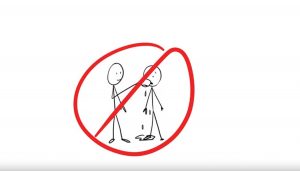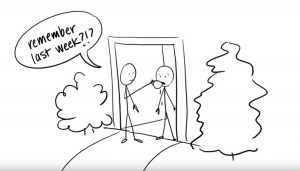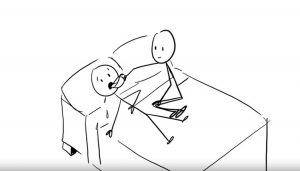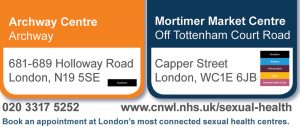
Dear Dr Laura,
I was at a sex party last week and pretty out of it. A guy came on to me and I think I said no, but we ended up having anal sex without a condom – and it’s all a bit of a blur. I’ve seen him since and he acted totally normal. I’m not sure what to do.
Mark
Dear Mark,
Sorry to hear about your experience. Unfortunately it’s not uncommon and there have been several court cases related to consent and chems use. Boundaries can seem blurred in the context of sex parties and chems but the law is clear: consenting to sex means you’ve agreed, by choice, and have the freedom and capacity to make that choice.
Alcohol and drugs (including chems) can affect your capacity to consent. If you are asleep or unconscious you do not have capacity. If you do consent to sex you can change your mind, even if you’ve started having sex. Consenting to one type of sex does not mean consent to all types. Being pressurised or blackmailed into sex are wrong. Consenting once does not mean you consent on other occasions.
Many people do not understand consent. A Family Planning Association survey of over 2,000 people showed just over half the respondents didn’t think it’s OK for someone to withdraw sexual consent if they’re already naked! Being naked does not mean consent!

There’s a lot of work to do in making sure people understand consent, and what could be more British than tea? Thames Valley Police have made a video cartoon about consent based on tea; it’s simple, clear and brilliant! Google ‘tea and consent’ and have a watch.
Back to chems; the discussion about consent at the European Chemsex Forum last year included many examples of men passing out while sex continued. One presentation was from Dr Chris Ward, a sexual health consultant running a chemsex support clinic in Manchester (thenorthernsexualhealth.co.uk/chemsex-support).

He described how men under-report sexual assault and that being in a chemsex/sex party environment blurs consent boundaries. However, to emphasise again, consent is black and white: under UK law, a person who is incapacitated through drink or drugs, or is unconscious, cannot give their consent to a sexual act. Chris highlighted the importance of how a question’s asked. When men were asked about being raped or being forced into sex it was under-reported (less than 20%) but more men reported an issue (almost 40%) when the clinic changed their language to questions like:
• “Have you ever had sex you weren’t aware of at the time?”
• “Do you feel like you can say ‘no’ to sex at parties?”
Most cases of non-consensual sex involved penetration while unconscious and only 1 in 7 of the men were previously aware it was a crime. Many sexual health clinics have now changed the way they ask about sex in men who use chems and have developed advice and referral pathways for men who report non-consensual sex. Our excellent psychology lead at Mortimer Market, Naomi Adams, provided lots of information for this reply (thank you Naomi!).

Some organisations that can help (all have good websites/support lines) include:
• The LGBT Foundation
• SurvivorsUK
• Antidote
• Galop
• The Havens
56 Dean Street have some useful information and links on their website including this leaflet from Galop, SurvivorsUK and London Friend: dean.st/wp-content/uploads/sites/11/2016/04/Consent-and-Chemsex-Advice.pdf
The Galop website has some excellent advice on consent; the key message is: Do what you both want. If it isn’t what you both want – or you aren’t sure – the best advice is stop, wait, give yourself time to talk, listen and think. Crucially, if you’re using G then make sure you dose it carefully to reduce your risk of passing out – the London Friend website has good tips.
Back to you Mark; as you’ve had condomless sex get a sexual health check-up and you can talk to the clinic about your experience – all should have access to someone who can give you advice (including reporting to the police) and signpost you to an appropriate organisation.
Going forward read the Galop advice, set boundaries in advance (ideally telling a friend who can keep an eye out for you) and remember that you can say NO at any point – anyone who ignores your wishes is breaking the law. As Thames Valley Police say, forcing someone who doesn’t want tea to drink tea is ridiculous and UNCONSCIOUS PEOPLE DON’T WANT TEA!

The Boyz Doc is Dr Laura Waters, an HIV and sexual health consultant at the Mortimer Market Centre in central London. Dr Laura answers your questions every week in Boyz. If you have a question for Dr Laura please email her at [email protected]













